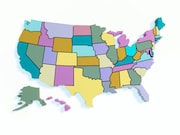Seventeen states have not expanded Medicaid, and expansion is an election issue in several states
MONDAY, Oct. 15, 2018 (HealthDay News) — Doing without medical care is much more common among low-income residents of states that have not expanded Medicaid than among low-income people in other states, according to a Government Accountability Office report.
The non-partisan agency analyzed federal survey data from 2016, focusing on low-income adults ages 19 to 64, the Associated Press reported.
Nearly 20 percent of low-income people in states that did not expand Medicaid said they did without needed medical care in the previous 12 months because they could not afford it compared to 9.4 percent in states that expanded the program. About 8 percent of low-income people in states that did not expand Medicaid said they either skipped doses of medicine or took less medicine than prescribed to save money compared with about 5 percent in states that expanded Medicaid. About 22 percent of low-income people in states that did not expand Medicaid said they could not afford needed dental care compared with 15 percent of those in expansion states. About 11 percent of those in non-expansion states said they needed to see a specialist but could not afford it compared with about 6 percent of those in expansion states, the AP reported.
Seventeen states have not expanded Medicaid, and expansion is an election issue in several states. In Idaho, Nebraska, and Utah, voters will decide whether their states should expand Medicaid; people in Montana will vote on maintaining that state’s expansion; and expansion is an issue in gubernatorial races in Florida, Georgia, and Wisconsin, which have not expanded Medicaid, the AP reported.
AP News Article
Copyright © 2018 HealthDay. All rights reserved.








